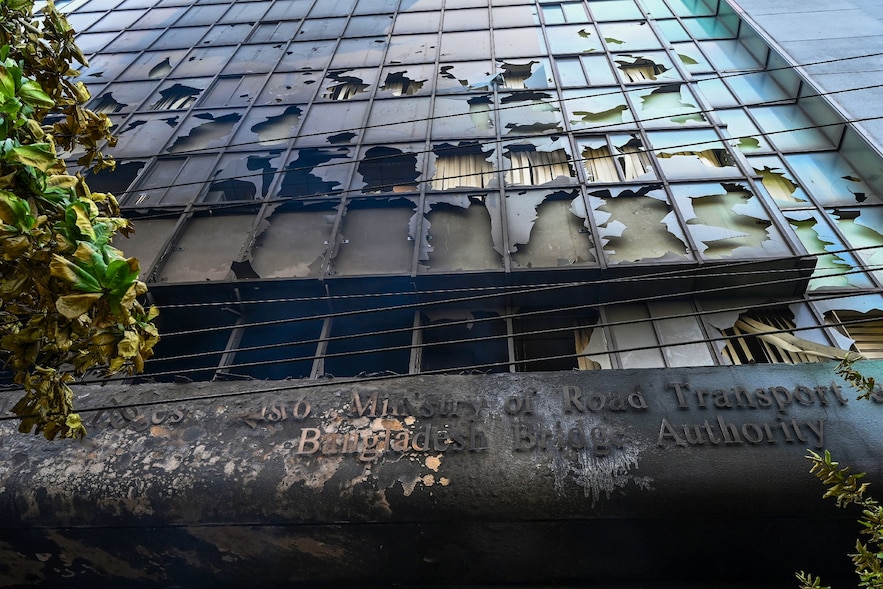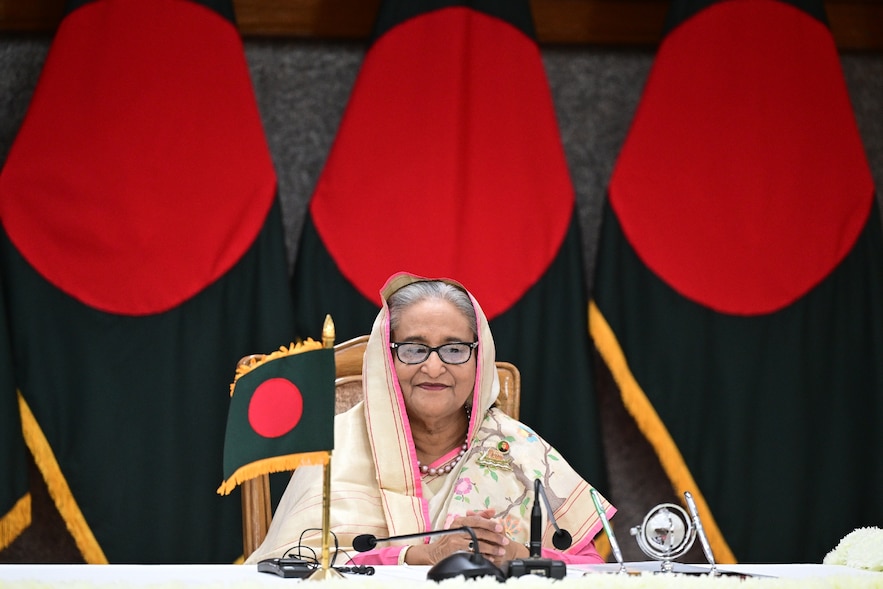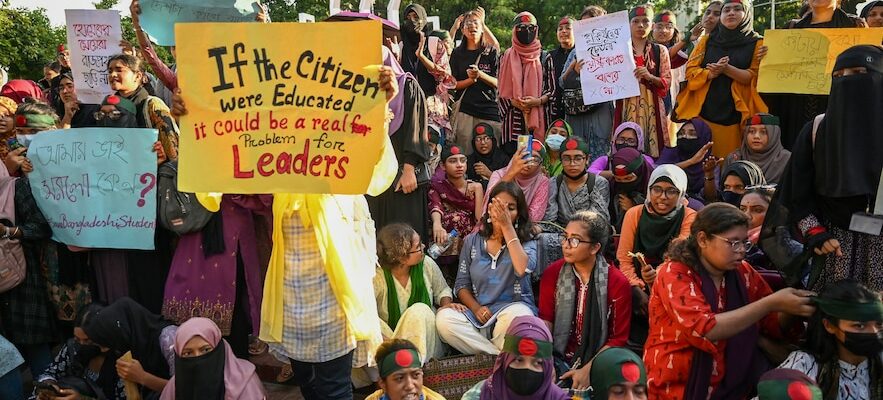A point of no return has been reached. On Saturday, July 20, Bangladeshi riot police violently repressed the student protest movement, firing live ammunition at demonstrators in the capital Dhaka, an AFP journalist noted.
Initiated in early July against a reform of recruitment rules in the civil service, the development of the movement in almost daily demonstrations has left at least 115 dead this week, according to an AFP count of police and hospital sources. An unprecedented violence for this country of 170 million inhabitants, where the hardening of repression pushes the demonstrators to demand the end of the autocratic power of Prime Minister Sheikh Hasina.
Quota system at the root of unrest
“Down with the dictator,” protesters chanted this week at several marches in Dhaka, a sprawling metropolis of 20 million people. On Saturday, thousands more gathered in Dhaka’s Rampura district, partly to protest the government’s curfew imposed the day before. The military was also deployed heavily in cities across the country on Saturday as police failed to control the unrest. Angry mobs set fire to several government buildings on Thursday.
While tens of thousands of young Bangladeshis are now demanding an end to Prime Minister Sheikh Hasina’s mandate, that was not their initial demand. In early July, the students first demanded an end to a quota system that reserves more than half of the country’s highly sought-after public sector jobs for specific groups close to power.
Protest against the quota system in the civil service, July 16, 2024 in Dhaka, Bangladesh
© / afp.com/MUNIR UZ ZAMAN
In place since 1992, this system had been reduced after a first student movement in 2018. But last June, the High Court reversed this decision, ordering the reintroduction of a quota reserving 30% of civil service positions for the children of fighters for independence against Pakistan in 1971. A decision taken as an affront by young Bangladeshis: faced with an acute employment crisis in a country struggling to provide work for its inhabitants, they see these quotas as tools to reward support for the ruling party, the Awami League.
Tensions rise after insults and repression
The protests have taken a turn in the last ten days. On Wednesday, July 10, the Supreme Court of Bangladesh announced the temporary suspension of this quota system in the civil service. A response deemed insufficient by the demonstrators who are demanding a definitive abolition of the system. Thousands of students are erecting barricades at the main crossroads in Dhaka and blocking the main highways linking the capital to other cities, according to the police.
The next day, Bangladesh police used tear gas and rubber bullets to disperse students. Clashes broke out between pro- and anti-quota student groups early in the week, and police repression increased. On Thursday, the government announced it was cutting off mobile internet, while law enforcement banned all gatherings in the capital since Friday. In total, AFP counted 115 deaths on Saturday, July 20, more than half of them from police gunfire.

A building set on fire by students opposing quotas in the civil service, on July 19, 2024 in Dhaka, Bangladesh
© / afp.com/Munir UZ ZAMAN
For Pierre Prakash, Asia director of the NGO International Crisis Group, the government itself provoked the crisis. “Rather than trying to address the grievances of the protesters, the government’s actions have made the situation worse,” he told AFP. The previous week, the Bangladeshi prime minister had notably inflamed tensions by comparing the protesters to Bangladeshis who had collaborated with Pakistan. An insult that is still very virulent more than half a century after the conflict.
A challenge to autocratic power
“Mocking them was an insult to their dignity,” Ali Riaz, a professor of politics at the American University of Illinois, also told AFP. According to the expert, it also means that the protesters “have no importance to a regime that has no accountability.”

Bangladeshi Prime Minister Sheikh Hasina speaks at a ceremony in Dhaka on April 23, 2024.
© / afp.com/Munir Uz Zaman
Beyond the quota system, Prime Minister Sheikh Hasina is facing a broader challenge to her 20 years of autocratic rule, including 15 years in a row after winning a new term in January. Her government is particularly suspected of misusing state institutions to entrench its grip and stamp out dissent, including through the extrajudicial killing of opposition activists.
In the absence of truly competitive elections for more than fifteen years, “disgruntled Bangladeshis have little choice but to protest in the streets to make their voices heard,” says Ali Riaz. Faced with a movement and repression that is growing in intensity, these demonstrations are “perhaps the most serious challenge to the Awami League regime since it came to power,” says Pierre Prakash, who is worried about a “dangerous situation” for the country.
